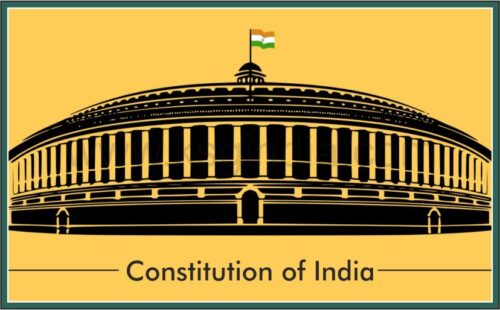CHARACTERISTICS OF CONSTITUTION OF INDIA
The Constitution of India is the supreme law of the land that lays down the framework for the governance of the country. It was adopted by the Constituent Assembly on 26th November 1949 and came into effect on 26th January 1950. The Constitution of India is one of the longest written constitutions in the world, consisting of 448 articles and 12 schedules, and is a blend of various provisions borrowed from different sources.
Here are the main characteristics of the Constitution of India:
- Written Constitution: The Constitution of India is a written document that contains a set of rules and principles that define the powers and functions of the government and its various institutions. It is a comprehensive and elaborate document that covers all aspects of governance, from the fundamental rights of citizens to the duties of the government.
- Federal Structure: The Constitution of India provides for a federal structure of governance with a division of powers between the central government and the state governments. The central government has the power to make laws on subjects specified in the Union List, while the state governments have the power to make laws on subjects specified in the State List.
- Parliamentary System of Government: India has a parliamentary system of government, which means that the executive is responsible to the legislature. The President is the head of the state, while the Prime Minister is the head of the government. The Parliament consists of the Lok Sabha (lower house) and the Rajya Sabha (upper house).
- Fundamental Rights: The Constitution of India guarantees certain fundamental rights to its citizens, such as the right to equality, right to freedom of speech and expression, right to life and personal liberty, and right to education. These rights are enforceable by the courts of law.
- Directive Principles of State Policy: The Constitution of India also contains a set of directive principles of state policy, which are non-enforceable guidelines for the government to follow while making laws and policies. These principles aim to promote social justice, economic welfare, and the overall development of the country.
- Independent Judiciary: The Constitution of India provides for an independent judiciary, which acts as a watchdog of the constitution and the rights of the citizens. The judiciary is headed by the Supreme Court of India, which has the power of judicial review to strike down any law that is inconsistent with the constitution.
- Secularism: India is a secular country, and the Constitution of India guarantees the right to freedom of religion to all its citizens. The government cannot discriminate against any person on the basis of religion.
In conclusion, the Constitution of India is a comprehensive and elaborate document that lays down the framework for the governance of the country. It is a written document that provides for a federal structure of governance, a parliamentary system of government, fundamental rights and directive principles of state policy, an independent judiciary, and secularism.


